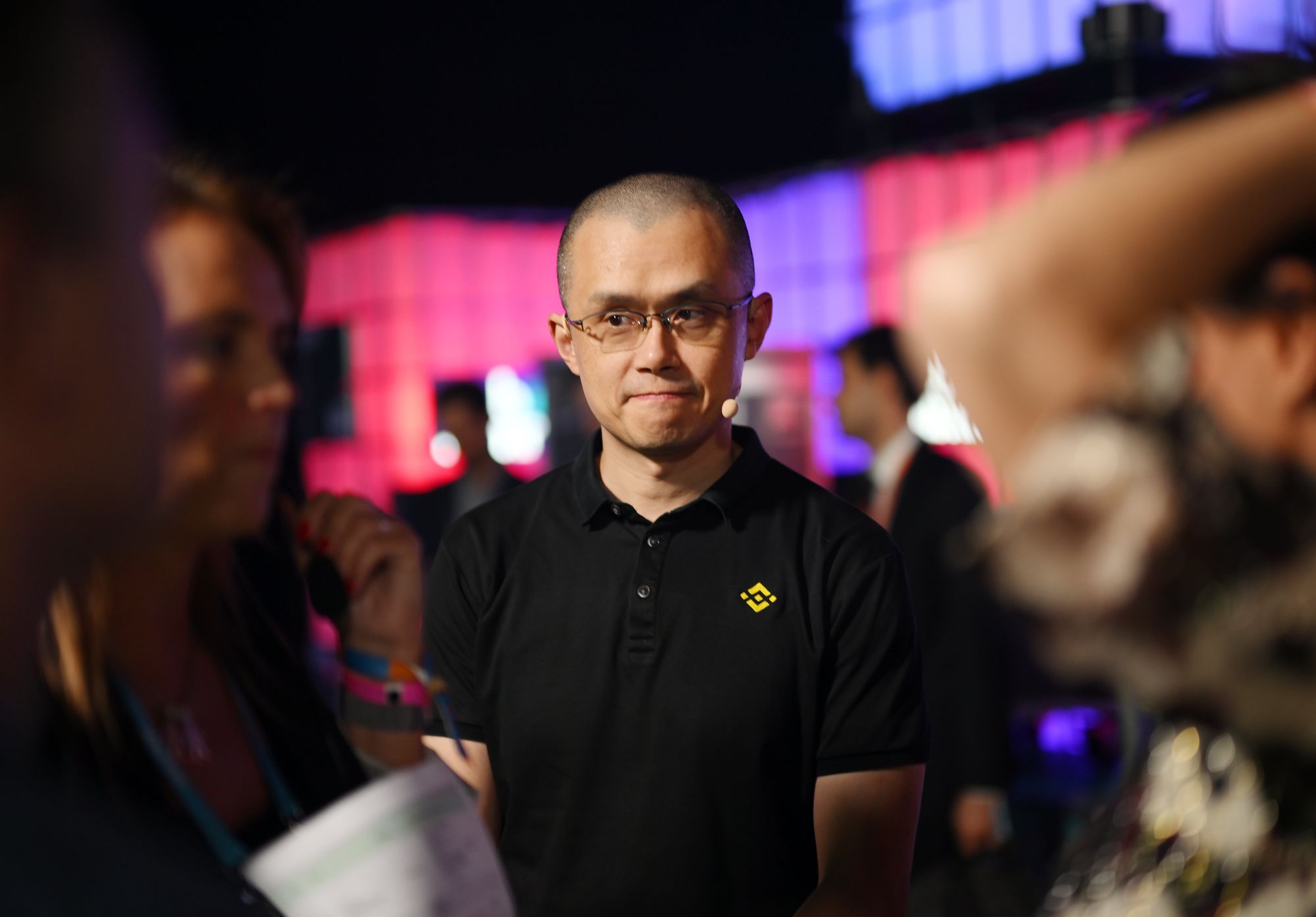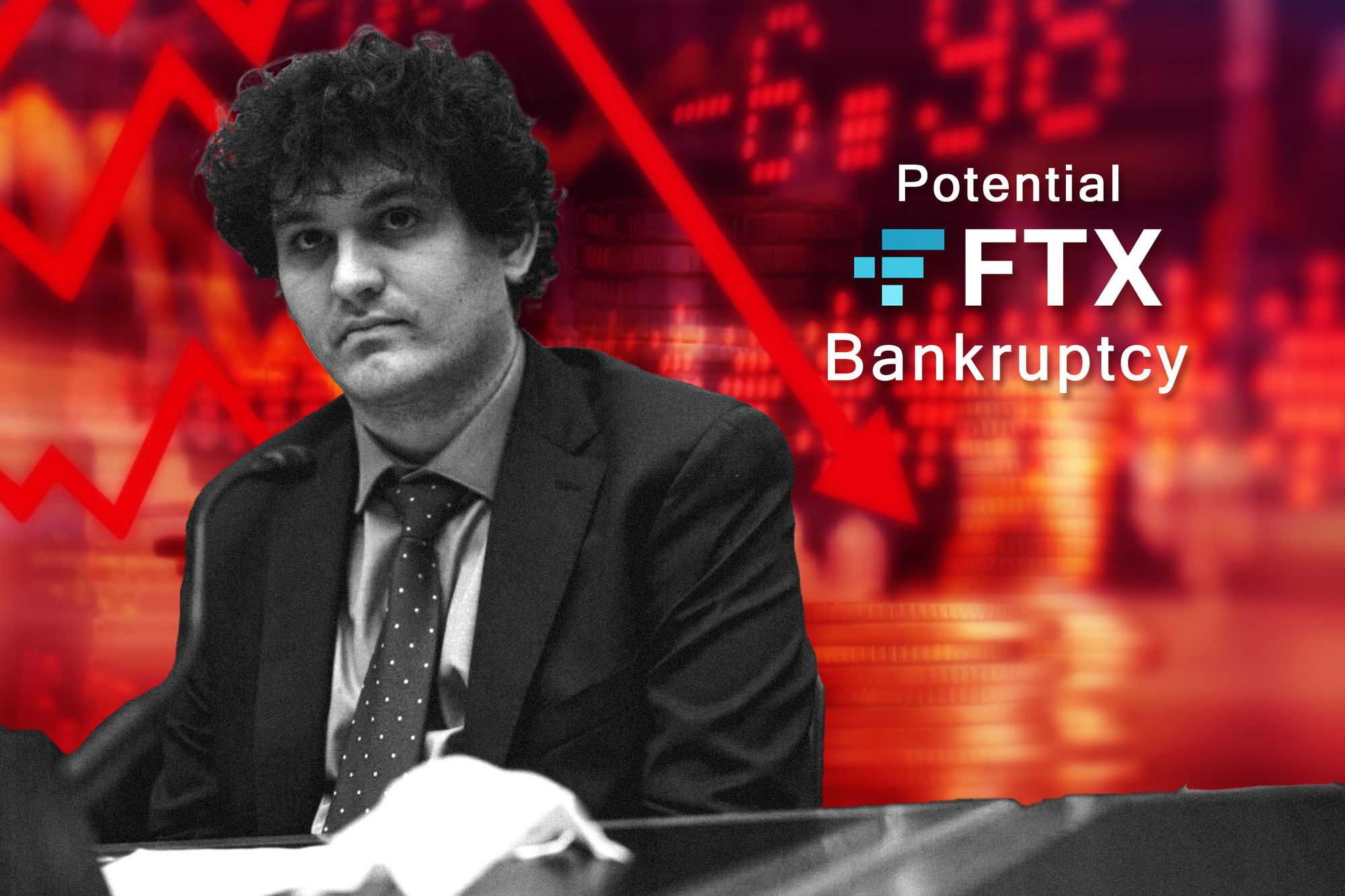
The following excerpt from "Crypto Kingpins," our six-part podcast out today, was published on Monday in Vanity Fair. Listen to Crypto Kingpins In May 2021, I took a taxi from my home in Singapore to a modernist mansion in a gated community on the resort island of Sentosa.
The following excerpt from "Crypto Kingpins," our six-part podcast out today, was published on Monday in Vanity Fair.
In May 2021, I took a taxi from my home in Singapore to a modernist mansion in a gated community on the resort island of Sentosa. It’s like Miami, but even hotter and with possibly more billionaires per square mile. And one of them, a crypto kingpin called Changpeng Zhao, had an urgent request.
Even now, he’s hardly a household name, although by the time my taxi pulled up the driveway, CZ, as he’s known, was one of the richest people on the planet, despite how Forbes ranked him at the time. Based on his own estimation, CZ had a paper net worth to rival Jeff Bezos or Elon Musk. But he was in trouble.
By a pool fringed with lush vegetation, wild peacocks pecking around, CZ laid out his problem. The Justice Department was investigating his crypto exchange, Binance, for possible money laundering. And he suspected that Sam Bankman-Fried, the co-founder of another crypto exchange, FTX, had been spreading rumors about Binance with US regulators and the media.
“It’s just not a smart thing to do, to bad-mouth anybody. Especially a bigger competitor,” CZ told me recently.

Indeed, it would prove unwise. CZ spoke calmly, but I could sense he was furious, especially as he considered himself a mentor to Bankman-Fried and had helped set him up. Just 18 months after our meeting in Sentosa, he would take actions that brought Bankman-Fried’s empire crashing down, exposing an alleged multibillion-dollar fraud at FTX.
This is the secret origin of the collapse of the global crypto industry and a reminder of its fragility. A feud between two crypto kingpins—Sam Bankman-Fried and Changpeng Zhao—that wiped out tens of billions of dollars in market value and is still playing out today.
As Michael Lewis prepares to publish Going Infinite: The Rise and Fall of a New Tycoon, his tell-all book about hanging out with Bankman-Fried prior to his arrest in the Bahamas over an alleged $8 billion fraud, little attention has been paid to CZ—a more influential figure in crypto—and how his tangled relationship with Bankman-Fried spelled disaster for the sector.
Our six-part podcast, Crypto Kingpins, which debuts September 19, is based on exclusive access to CZ over the past few years in Singapore and, now, Dubai. I’m still talking to CZ today, even as he faces his own legal jeopardy.
Bankman-Fried’s trial on seven criminal counts, including alleged money laundering and wire fraud, kicks off in early October in a New York courtroom. Prosecutors allege Bankman-Fried stole $8 billion in customer funds to cover trading losses, make venture investments, and to enrich himself.
He’s pleaded not guilty.

At the peak of his career in 2022, Bankman-Fried lived in a $40 million Bahamas penthouse, took out a Super Bowl ad, lavished political donations on Republicans and Democrats, and enlisted celebrities including Tom Brady, Gisele Bündchen, and Steph Curry to promote FTX.
CZ will be watching Bankman-Fried’s trial closely, although he’s got his own substantial legal battles to fight. In June, the Securities and Exchange Commission filed civil charges against him and his company. The lawsuit alleges that Binance sent customer funds to a company controlled by CZ and evaded laws designed to protect American investors, among other things. Binance is fighting the lawsuit.
Now that FTX is in the midst of bankruptcy proceedings, the trajectory of Binance—and of CZ—is a bellwether for the entire industry. Is crypto the future of finance? Or will it wither away like many a grubby gold rush of the past?
Back when I first met CZ, in May 2021, Bankman-Fried was the darling of US media, called the J.P. Morgan of crypto. By January 2022, FTX had raised roughly $2 billion from some of the world’s biggest venture funds, at a $32 billion valuation. His high-water mark, in April 2022, came when FTX sponsored a crypto conference in the Bahamas, at which Bankman-Fried partied with Katy Perry and talked onstage with Bill Clinton and Tony Blair.
CZ, meanwhile, was facing negative stories in the press about the Justice Department probe into Binance. I’ve worked for years as an investigative reporter, and co-authored the book Billion Dollar Whale, about the 1Malaysia Development Berhad scandal, and CZ wanted to know how to deal with the media.
I told him to just be transparent. But I had no answer to why some in the US media were lapping up Bankman-Fried’s every pronouncement.
“His media game is top-notch. I’ve not seen presidents, I’ve not seen politicians, I’ve not seen Mark Zuckerberg or Elon Musk getting those types of treatments. So whatever he did with the media, and to some extent with politicians, is just phenomenal,” CZ said.
At the start of his career in crypto, Bankman-Fried, famous for his baggy cargo shorts and untamed shock of hair, wanted to get to know CZ, a bespectacled, wiry Chinese Canadian 15 years his senior.
Like many in crypto, CZ wasn’t a revolutionary looking to democratize finance, but a Wall Street alumnus who had worked for Bloomberg Tradebook.
In 2017, CZ set up Binance, incorporated in the Cayman Islands, after a friend urged him to invest in Bitcoin, the first cryptocurrency. He admits he got lucky. Bitcoin’s price rallied, and Binance, which takes a cut of every transaction, made billions of dollars.
Bankman-Fried, meanwhile, took a job at Jane Street, a quantitative trading firm, after graduating from MIT. Many employees at Jane Street were adherents of “effective altruism,” a philosophy that encourages taking high-paying jobs and giving much of it away to charity. He’d made a good salary at Jane Street, and has said he donated more than half of it, but crypto offered even greater riches.
The fortunes being made in crypto, especially by CZ, were an inspiration. In 2017, Bankman-Fried quit Jane Street and set up Alameda Research, a crypto hedge fund, based in Berkeley. He quickly became a VIP trader on Binance, CZ says, and in 2019 Bankman-Fried organized a party at an aquarium in Singapore and invited CZ along.
A few months later, Bankman-Fried would start his own exchange, FTX, and, according to CZ, he asked Binance to become the first major investor. From the start, the relationship was competitive.
“They had a prototype written up in either Python or Node,” CZ says. “We were worried that the performance would not be good enough.”
CZ declined to invest. The snub irked Bankman-Fried, CZ remembers: “And so they went off on their own.”
But soon, FTX became popular, in large part because—like Binance—it allowed traders to make huge bets on crypto prices. Later that year, Bankman-Fried came back to CZ, who this time agreed to have Binance take what he says was a 20% stake in FTX, worth about $25 million, to help it expand.
“At the time, he was very humble,” CZ says.

By the time I met CZ in Sentosa, however, Bankman-Fried seemed to be turning on him. CZ had even heard he was telling regulators and the media that CZ was close to China’s government and not to be trusted.
“They spent a lot of time trying to paint Binance as a Chinese company. So they were leveraging the US-China tension very aggressively,” CZ says.
In July 2021, just weeks after I had first met CZ in Singapore, Binance sold its stake back to FTX, cutting all ties with the company. Bankman-Fried paid Binance in part with a kind of cryptocurrency issued by FTX, CZ says.
After crypto prices plunged last year, FTX was in financial trouble. Bankman-Fried traveled to the Middle East with Anthony Scaramucci, Trump’s former communications director, in an effort to raise capital. The Mooch had sold a stake in his financial company to FTX, but what Bankman-Fried did in meetings with high-level Middle Eastern regulators took him by surprise.
“It got back to me through some people that, ‘Hey, you know, Sam was really shitting on CZ,’” Scaramucci recently told me. “And Sam was really, you know, suggesting some bad things about CZ to some of the regulators there.”
Perhaps Bankman-Fried felt there was only room for one crypto kingpin. Whatever the reason, it was rash. “That wouldn’t be my go-to move,” Scaramucci says.
When rumors started bubbling late last year about the solvency of FTX, CZ remembered the FTX cryptocurrency he’d held since selling his stake back to Bankman-Fried. Those assets gave CZ the ammunition he needed to take his kill shot. In November, he announced he was selling the cryptocurrency, sparking a sell-off. Spooked, investors pulled billions from FTX, which promptly folded.
Soon after, John J. Ray III, the current CEO of FTX, called in to oversee the bankruptcy, said that billions of dollars in FTX customer funds were missing.
With Bankman-Fried awaiting trial, CZ is fighting for his own survival. Binance has filed several motions in a US district court in opposition to the SEC’s lawsuit. And CZ is asking people not to confuse Binance with FTX.
“We’re not trying to make money trading against our users,” he said. “We don’t do that.”
Get in touch with us: whalehunting@projectbrazen.com
You can also follow Whale Hunting on Twitter and Project Brazen on Instagram.
Join our Discord server to chat about Whale Hunting scoops, get behind-the-scenes insight into projects like Fat Leonard and join the hunt for Jho Low – we'll post clues as they come to us.
Support investigative reporting at Whale Hunting and get access to exclusive content every week by signing up for our paid subscription.
 Related Posts
Related Posts